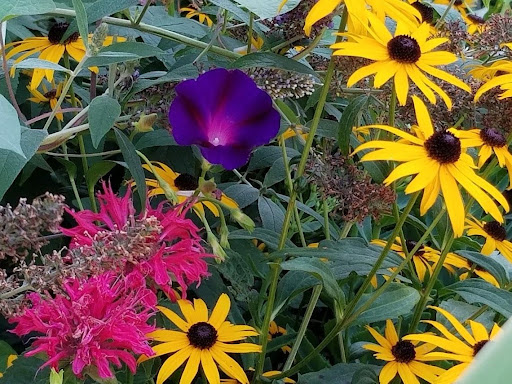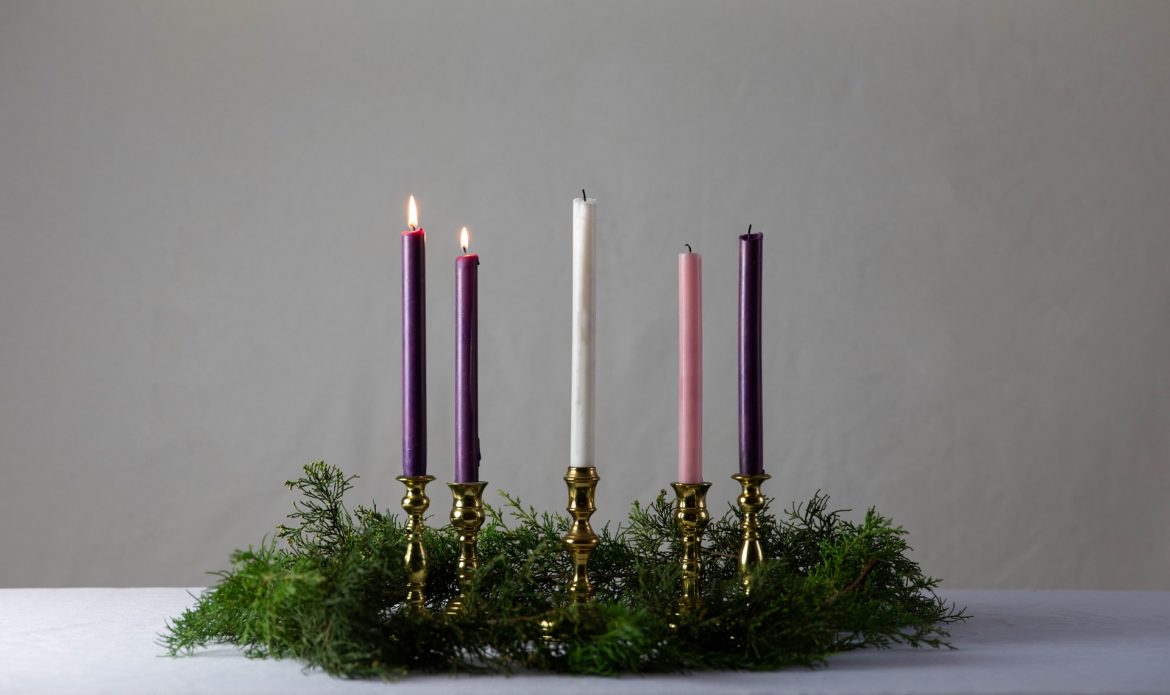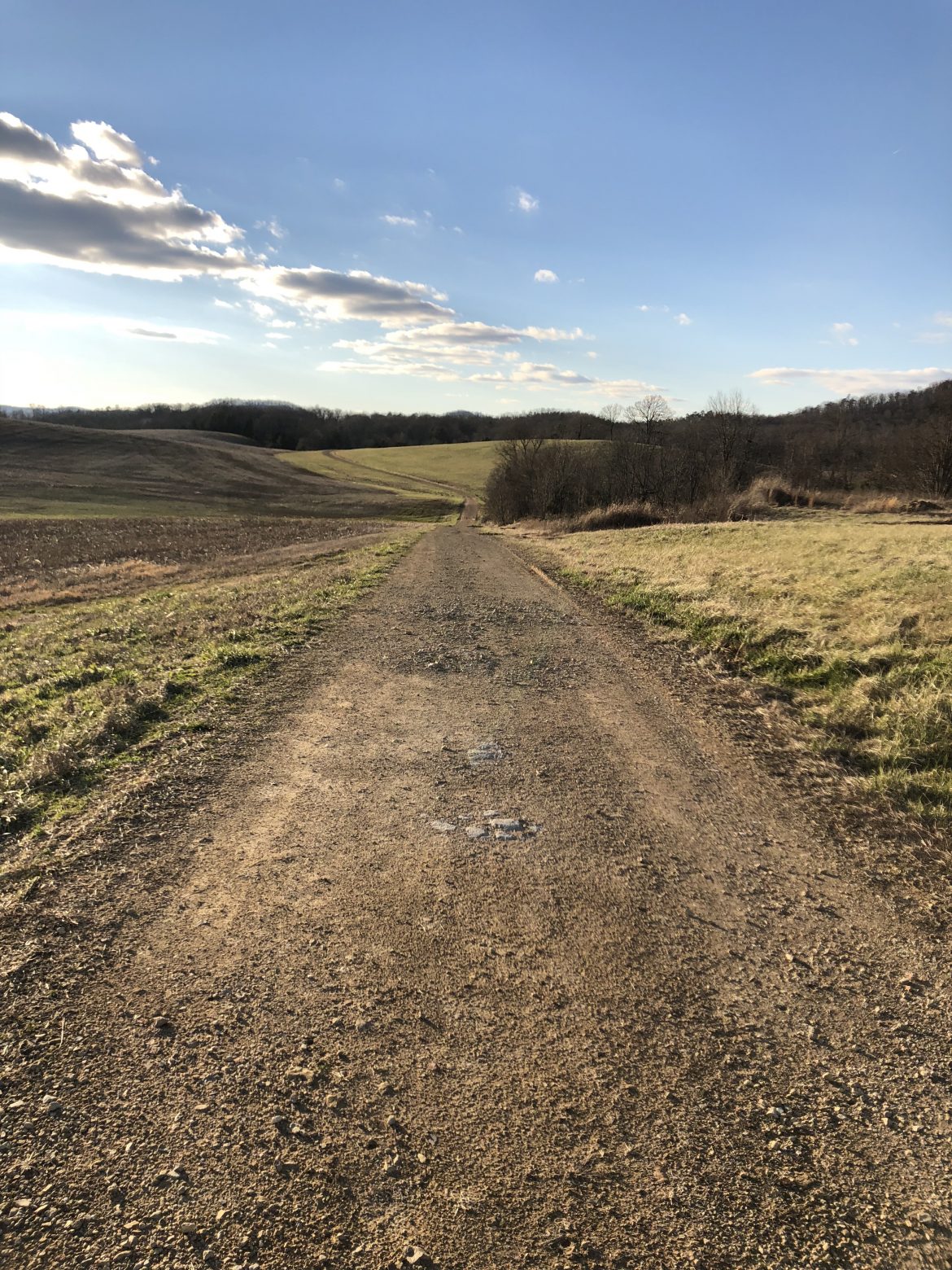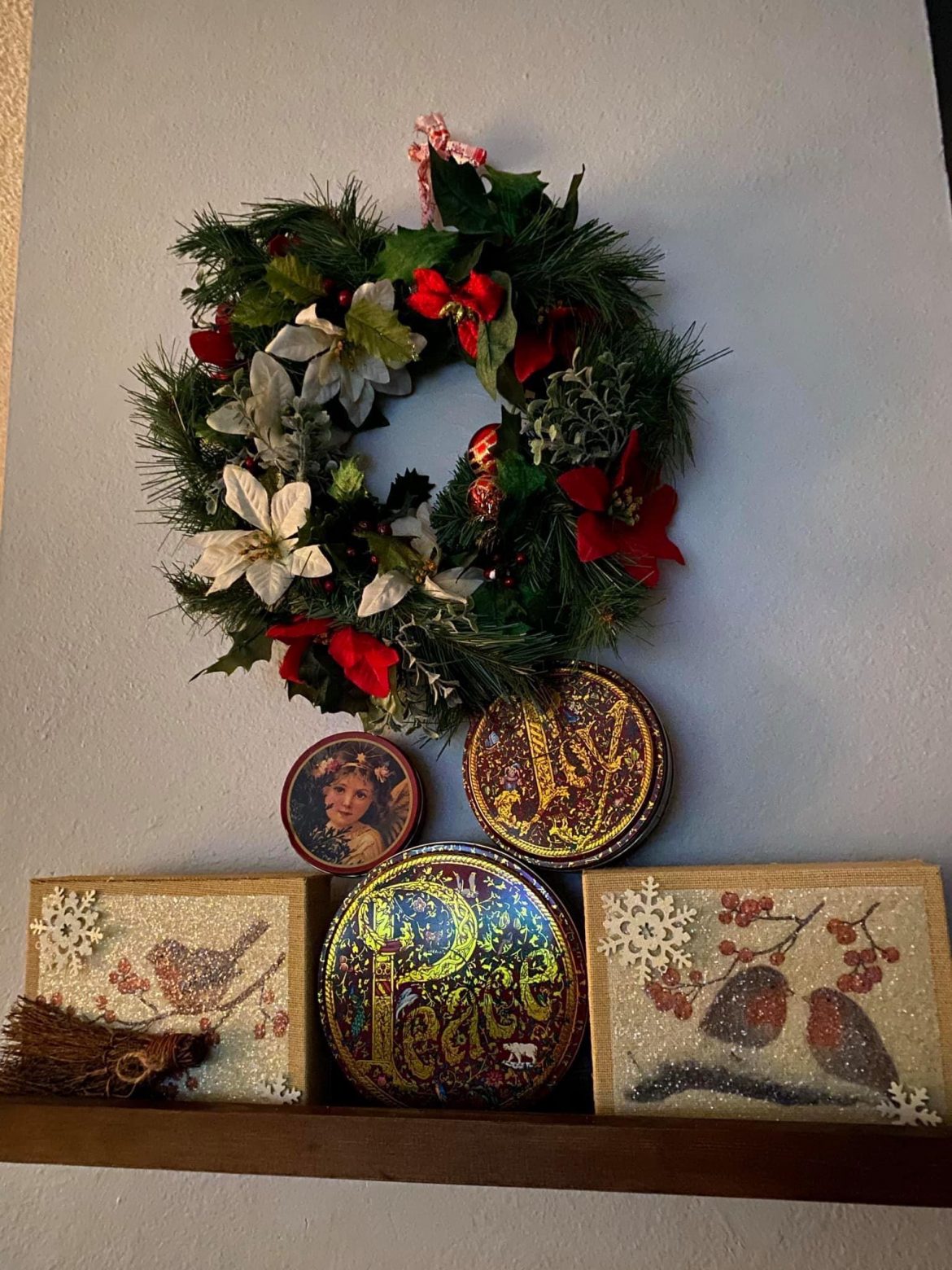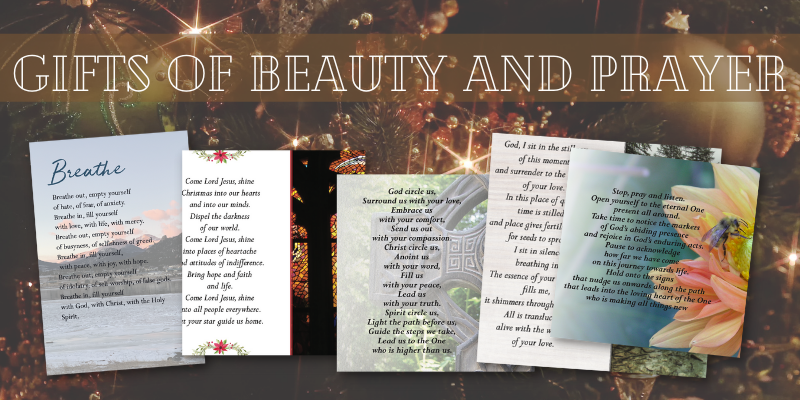all words and photos by June Friesen
The idea for World Soil Day was birthed through the International Union of Soil Sciences in 2002. The purpose of having a day like this is to raise awareness of the importance of soil and the importance of caring for it so that it can and will be productive for many years ahead. This year the theme is to make us aware of the importance of maintaining healthy soil: “Halt soil salinization, boost soil productivity.”
When I was considering what God may have thought when He created the world, and especially created the garden of Eden lush with all kinds of plants, waters etc. I wonder how He created things to work together to provide for the continuation of life for thousands of years. The beauty of the creation at the beginning was that everything was perfect so there was no need to worry about the problems that face so many places in the world today in regards to healthy soil.
I found a few verses in Ezekiel that talk about how soil works:
Ezekiel 17: 3-6 … he took a cutting from the land and planted it in good, well-watered soil, like a willow on a riverbank. It sprouted into a flourishing vine, low to the ground. Its branches grew toward the eagle and the roots became established— A vine putting out shoots, developing branches.
Soil, especially healthy soil, is necessary for all of life whether it is plant or animal. It gives the possibility of plant life of all kinds as they are designed to get water and nurture from the soil. It provides living space for insects as well as some animals and at times it also provides living spaces for humanity. The house below has sides made of mud and as you can see the roof is soil with grass growing on it. At times these have been the only homes some people have known, and possibly there are still some today as they are said to be very economical in many ways.
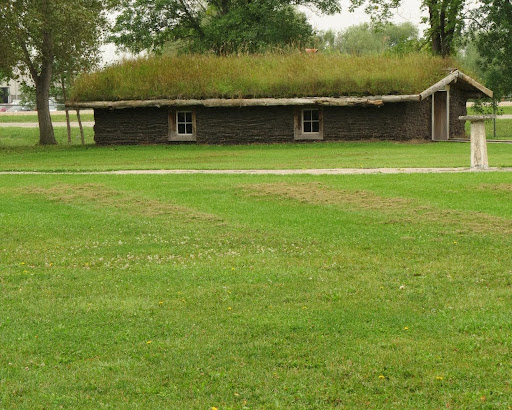
Soil also is a filtration system for water. As the rains fall and the snow melts it passes through the soil into the water supply systems underground from where many of us gain our water for everyday living. It is through the soil that plants gain the water for growth through their root system. It also is a stability system for plants–as we all know the devastation when soil becomes washed away or too waterlogged to support our trees. The trees come tumbling over.
I grew up on a farm in the midwestern states of the USA. I learned many things about growing grains, gardens, and trees as I grew up. Fertilization and crop rotation were important. Because we had a large farm with cattle much of our fertilizer was from our cattle. As I moved into adulthood and on my own, I had a garden until a few years ago. I composted all of my vegetable and fruit peels etc. and used them instead of buying fertilizer. I cannot explain but I always had an abundant garden and as a family, we were very healthy. I learned that composting also helps to nurture the necessary worms and ground bugs that enhance garden soil. This definitely shows how we can live without some of the chemicals that have been made and are used in our soils for the production of foods. So, this is a first-hand idea to embrace to follow the theme for this year:
“Halt soil salinization, boost soil productivity.”
I also was reminded as studying about soil that God likens our hearts to soil.
Psalm 97:11 reads:
“Light-seeds are planted in the souls of God’s people, Joy-seeds are planted in good heart-soil.”
He plants good seeds in our hearts but it is up to us to nurture those seeds so that they grow and produce good fruits. And then of course that reminds me of the fruit of the Spirit that Paul writes about in Galatians 5:22 – “the Holy Spirit produces this kind of fruit in our lives: love, joy, peace, patience, kindness, goodness, faithfulness, 23 gentleness, and self-control.” All these things can be nurtured and produced when we feed and water our spirits regularly with time in prayer and meditation on God’s Word. Just as in a real garden there are probably times where one has to do a bit of weeding out of things that creep in – that is how weeds are in a garden and if not tended to they choke out the good plants and prevent a good harvest.

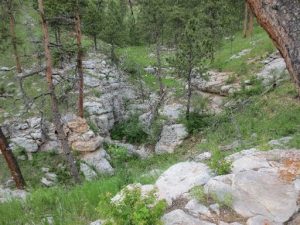
EMBRACING THE SOIL
The soil at times may seem a bit unecessary when one observes nature,
We see the shrubs, flowers, and even trees growing as if it were out of rock,
And we may stop and wonder – how is that possible?
Then I take a walk and I notice –
Almost everywhere I go there is soil.
There is red soil, black soil, gray soil, brown soil, and possibly colors I have not yet seen or discovered,
There is soil everywhere and anywhere – some places welcomed and others not so welcomed;
There are plants embracing this soil no matter where it may be,
The cracks in the sidewalk, the flower beds, the gardens, the forests, the mountainside and even the ocean beds
All using it to produce a myriad of plants, trees, flowers –
Home for insects and small animals as well as food for many too.
God:
Thank you for thoughtfully creating soil and showing us how to embrace it,
Thank you for how it grows tasty foods in so many forms and flavors,
Thank you for the stability it gives to our feet as we walk upon it,
Thank you for the creativity You have gifted us with to care for this soil,
Help us to embrace and care for the soil in our areas faithfully and carefully,
Help us to be mindful of sharing with others the wisdom we gain in our caring for this soil upon our earth,
So all of the world may benefit of this great resource we have.
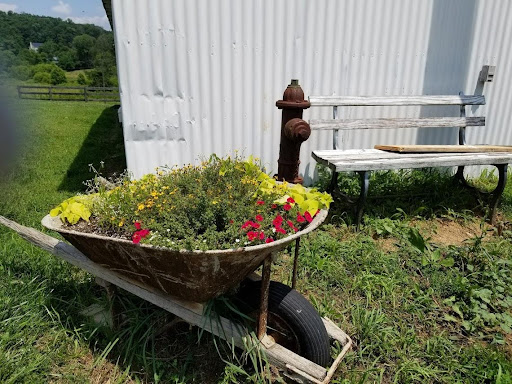
 Join Christine Sine and Lilly Lewin on Wednesday, December 8th at 9am PDT (check my timezone) for our next FB Live happening on our Godspace Light Community Facebook Group! Can’t make it? No worries–we upload the sessions on our youtube channel so you can still enjoy the lively discussions and interesting topics discussed. And catch us live for the next session–happening here every other Wednesday!
Join Christine Sine and Lilly Lewin on Wednesday, December 8th at 9am PDT (check my timezone) for our next FB Live happening on our Godspace Light Community Facebook Group! Can’t make it? No worries–we upload the sessions on our youtube channel so you can still enjoy the lively discussions and interesting topics discussed. And catch us live for the next session–happening here every other Wednesday!
by Laurie Klein
You only get one life.
*CHRISTMAS, 2000: THAILAND*
I miss my armchair back home. Upholstered wings to enfold and console me. Safe adventures via good books.
No furniture beckons me here in the meeting room where our team debriefs with the Advocate.
It’s the day after the all-day birthday bash for Jesus. Shoeless, we sit on the floor, legs angled to one side, tender arches and soles turned toward the wall. It makes 50-year-old hip joints ache, but we farangs have learned that aiming a foot at another person gravely insults them. Thai culture deems human feet filthy.
As usual, dirt stains blotch my socks like islands of rust. My toes, lanced with a bolt of icy pain, cramp. Heat clogs my lungs, my breath stutters. Disease meets humidity.
But guilt outweighs all.
I am silently reliving last night’s fire-gone-rogue, trying to suppress the aftershocks: the Christmas play. And what followed. And my reaction.
To be sure, nobody’s shining hair or clothing went up in flames. No one suffered burns. The blaze petered out when the pyro-rascals led everyone closer to the stage. The play had begun.
And what an opening act! I stared. Everyone stared. Young Thais staggered and slurred, feigning drug highs, or drunkenness. Sham fights ensued. And was that a hooker?—crooking her finger, stage left?
I couldn’t watch. I sped to the Advocate’s kitchen, toed off my shoes near others piled by the door. I stood at the sink in my wretched socks, scrubbing dishes. Barefoot friends scraped plates and stored the leftover food.
A teammate entered and drew me aside, her face troubled.
“I think you should know the kids are dismantling—”
Oh no. The creche? My creche? I flung my dishtowel, ignored my waiting shoes, and tore outside.
I arrived to see my cherished birds tossed back and forth. Two kids paraded around in the holy family’s clothing. It looked torn.
I had no words.
Choked with hurt and fury, I had turned away.
Creche, sounds like crush
Now, the memory grinds to a close. Growing commotion wrenches me back to the meeting room. A woman from the village has arrived, gesturing, jabbering.
The Advocate’s eyes widen. Then she translates. The woman wants to pray. To our God. She wants us, the farangs, to come to her house and explain all this to her husband.
The team bursts into applause. Then 100 questions. The sole car in the village, the Advocate’s station wagon, can hold nine people.
“Who wants to come?” she asks.
I just want to go home. Instead, I’m stranded here among jubilant friends, unable to shag a ride to the place where I sleep. Call me the prodigal’s elder brother, but I want no part in the celebration.
Nor do I want to examine my failures.
Sometime later
The team returns, all talking at once. When they had arrived at the woman’s home, villagers crammed her front room, wall-to-wall. They bubbled over with questions about Jesus. EYC’s play must have presented the gospel, after all. While I sulked at the sink. The Advocate had retold the Story, then led them in prayer.
Each person there had given their life to Jesus.
Now, my teammates turn toward me, the one put in charge of the program. Isn’t it awesome? How do I feel, they want to know.
I begin to understand the shepherds: bedazzled, bewildered by news beyond imagining. I nod and smile, make the right noises, then slink off to the car for my ride home.
And I lie awake, offended. Confused. Which makes me feel even more left out. I should be ecstatic. But over four weeks of Advent tainted by personal failure, I had felt dismissed. Over and over.
And last night, I’d felt downright murderous when the creche—my small, private kingdom—fell into ruins, ransacked.
I groan, place the cool side of the pillow over my face. I begin to understand Herod.
Yes, Herod. I have adored my creation more than my savior.
Oh, how little I know him. Oh, this daredevil, venturous faith! How perilous. How wondrous.
I kneel to grasp the imagined hem of his garment. It appears fleetingly, in my mind’s eye: traditional Thai cloth in vivid colors. And somewhere in the background, the woman who sewed it. Sacrificially. Because I asked.
Savior, Messiah, forgive me.
And something flows in, leaving my soul sore amazed. I begin to understand the shepherds.
Then, I taste Mary’s hushed bliss. And Lucy’s awe, abreast Narnia’s easternmost sea, the serene waters mantled for miles in white lilies.
“There rose a smell which Lucy found it very hard to describe; sweet—yes, but not at all sleepy or overpowering, a fresh, wild, lonely smell that seemed to get into your brain and make you feel that you could go up mountains at a run or wrestle with an elephant.
“I feel that I can’t stand much more of this,” she whispered, “yet I don’t want it to stop.”
I am 50. I am 100. I am new-born. Broken open by Story. Tenderly. Thoroughly. What a strange world, that we can take brief steps in the shoes of others. All is adventure. Wonder.
All is grace.
FRIENDS, FRIENDS . . . YOU ONLY GET ONE LIFE
*ADVENT, 2021*
THOSE WHO INTERPRET DREAMS TELL US each character reflects an aspect of ourselves. Each character walks in different shoes. Or socks. Finding commonalities with the cast of the Christmas story brings alive new recognitions within memories—in startling, healing, and fruitful ways.
Poet Mary Oliver asks:
Tell me, what is it you plan to do with your one wild and precious life?
***
Editor’s Note: This is Part III of Laurie Klein’s series Advent*ture in Asia. You can find Part I here and Part 2 here!
Photo by Jen Theodore on Unsplash
As an Amazon Associate I receive a small amount for purchases made through appropriate links. Thank you for supporting Godspace in this way.
Give the Gift of Wonder this holiday season! Our newest virtual retreat experience, Walking in Wonder Through Advent, is partly inspired by but separate from The Gift of Wonder. Rekindle the wonder of the Advent season; experience renewal in an online course at your own pace. Look beyond the Advent season with our other Gift of Wonder resources! Explore what childlike characteristics shape us into the people God intends us to be. Be encouraged to develop fresh spiritual practices that engage all our senses and help us to live a new kind of spiritual life that embraces the wonder and joy that God intends for us. Embrace the gifts of Awe and Wonder; gifts that sustain us, practices that are relevant and important in these times. Find it all in our shop!
I wrote this litany several years ago for the Advent devotional Waiting for the Light but decided this year that it needed some revision and updating. Please feel free to use part or all of it. Just acknowledge where you found it. Thanks. You might also like to check out this Celtic Advent Litany by John Birch
In this Advent season we await the coming of Christ
Come, Christ of love, come, We await your coming.
We await the coming of God’s revealing light,
Come, Christ of love, come, We await your coming.
We await the coming of God’s saving hope,
Come, Christ of love, come, We await your coming.
We wait the coming of God’s redeeming child,
Come, Christ of love, come, We await your coming.
(Pause for lighting of the Advent candles)
We wait for the God of life,
We wait for the Christ of love,
We wait for the Spirit of truth.
Come down, come in and dwell among us.
We wait in patient expectation for your coming,
We wait in hope for your promises to bee fulfilled,
We wait in joy for your salvation to be fully revealed.
Come down, come in and dwell among us.
Come into our hearts that we may love you,
Come into our minds that we may know you,
Come into our lives that we may serve you.
Come down, come in and dwell among us.
(Read Scripture for the Day)
Child of promise come,
Revealer of God come,
Bringer of life come,
Come to the beaten and the battered,
To the despised and rejected,
To all in whom the divine image is still distorted.
We wait in joyful expectation.
Not for a distant emperor but for a helpless babe.
Not for a prince in a gold palace, but for a displaced and frightened refugee.
Not for a man of power, but for a vulnerable infant.
Come to those outcast like shepherds in the field.
Come to foreigners like Magi watching from afar.
Come to rich and poor, young and old, male and female.
We wait in hopeful anticipation.
Come and bless all creation with your love,
Bring salvation on the earth,
Rule with justice and in peace.
Come Child of promise, open the windows of our hearts
Come Christ of compassion, open the doors of our homes
Come Prince of Peace, open the pathways to our lives
We wait with all the peoples of the earth,
Child of hope we welcome your coming,
Christ of life we welcome your coming,
King of glory we welcome your coming.
Our Father who art in heaven hallowed be thy name. Thy kingdom come, thy will be done, on earth as it is in heaven. Give us this day our daily bread and forgive us our trespasses as we forgive those who trespass against us. Lead us not into temptation but deliver us from evil, for thine is the kingdom the power and the glory, for ever and ever. Amen.
Come Lord Jesus and lead the captives from their prisons,
Come Lord Jesus for in you we trust O bringer of life.
Come to bring peace in the midst of war,
Come Lord Jesus for in you we trust O bringer of life.
Come to offer comfort in the presence of mourning
Come Lord Jesus for in you we trust O bringer of life.
Come to provide abundance in the midst of hunger
Come Lord Jesus for in you we trust O bringer of life.
Come to show forth justice for those who have been oppressed
Come Lord Jesus for in you we trust O bringer of life.
Let us put on hope to guide us,
Let us put on love to surround us,
Let us put on joy to sustain us,
Let us put on peace to inspire us.
And clothe ourselves with Christ.
Amen.
Advent shoes…
I realized before our Advent retreat in November that I needed some help walking in the wonder of Advent this year…
What would help us walk into the Wonder of Advent?
Thus says the Lord:
Stand at the crossroads, and look,
and ask for the ancient paths,
where the good way lies; and walk in it,
and find rest for your souls.But they said, “We will not walk in it.”
We might need to say YES to what Jesus is up to in our lives.
We might need to get rid of the things that are blocking our paths and prohibiting our ability to walk in Wonder. Taking off anger, and hostility, frustration, busyness, comparison, perfection, etc.
We might need NEW SHOES! Or even SOCKS! To help us find the WONDER and rediscover the paths that lead to rest for our souls!
To actually WALK in Wonder this Advent and Christmas
I decided I needed to consider what kind of shoes I might need.
House slippers…
Running Shoes….
Party /Dress up /Dancing shoes!
Those would be shoes for celebration!
Do you need to rediscover the joy of the celebration of the birth of Jesus?
When a baby is born we celebrate!
We offer congratulations to the parents and family members…
In the Nativity story people burst into songs of praise and prophecy!
Like Zechariah, Mary, and Elizabeth, not to mention the angels singing to the shepherds!

What Shoes do you Need ?
Maybe it’s a pair of hiking boots to get out there and really rediscover the old paths, the ancient ways of God on an actual trail!
Or a pair of running shoes to get you outside to discover the beauty of nature! And allow the heavens to declare the glory and wonder of God!
What about taking yourself or your family–or even your small group–outside on a clear night to look at the stars and be reminded of the Magi who followed that star so long ago, anticipating the king they would find!

Take off your Boots!
Maybe you’ve been wearing your combat boots and need to exchange them for a pair of fluffy or comfy slippers…
We all have battles we are fighting, and have been fighting, in these last couple of years.
Is it time to take a break from the battles, the fight? Even Jesus took breaks!
Jesus invites us to discover the Unforced Rhythms of grace!
How would a pair of slippers help you walk in wonder this year?
Matthew 11:28-30
Are you tired? Worn out? Burned out on religion? Come to me. Get away with me and you’ll recover your life. I’ll show you how to take a real rest. Walk with me and work with me—watch how I do it. Learn the unforced rhythms of grace. I won’t lay anything heavy or ill-fitting on you. Keep company with me and you’ll learn to live freely and lightly.”Advent Wonder Socks
I decided I needed new socks!
So these are my Advent Wonder Socks!
I put them on this morning to remind me that wonder surrounds us all day long!
We just need to take time to look and pay attention!
To pause and take notice! To put on DIFFERENT SHOES OR NEW SOCKS to help us remember to WALK IN WONDER!
Even in the mess of life, there is Wonder to be found because God is here!
Jesus came into our messy world, lived as one of us in the Mess!
Gave us the Holy Spirit to be with us always, daily, in the Mess!
And Jesus came into the world in bare feet!
So maybe you need to take off your shoes and walk around barefoot each day and embrace the wonder of your toes, or all the textures you feel as you walk around!
Weather permitting you could go barefoot outside!
Or imagine and consider baby feet to help you recapture the Wonder of Advent!
Jesus coming to us as a baby … the WONDER of all the innocence and beauty and mess of a newborn!

Baby Feet
So I’m considering how to recapture the Wonder … putting on my shoes and socks each day!
Taking off the shoes I don’t need!
Walking in NEW LIFE, seeking the paths that bring me REST!
Considering Emmanuel
The Wonder of God with us! In Bare Feet!
The Wonder and Adventure even in the messiness of 2021…
Even in a pandemic that keeps going!
Putting on my Wonder Socks and Walking in Wonder in the midst of it all! AMEN!
©lillylewin and freerangeworship.com
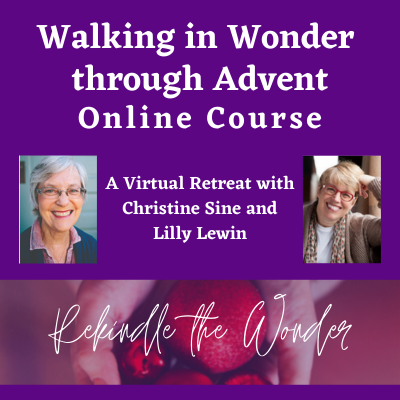 Are you ready to rekindle the WONDER of the season? Join Christine Sine and Lilly Lewin in this virtual retreat as they walk you through practical and fun activities focused on Advent Wonder. Sign up for 180 days of access to work through enriching discussions and engaging exercises at your own pace. Or give it as a gift! If you have purchased courses from us before or plan on purchasing in bulk, email us for a discount code.
Are you ready to rekindle the WONDER of the season? Join Christine Sine and Lilly Lewin in this virtual retreat as they walk you through practical and fun activities focused on Advent Wonder. Sign up for 180 days of access to work through enriching discussions and engaging exercises at your own pace. Or give it as a gift! If you have purchased courses from us before or plan on purchasing in bulk, email us for a discount code.
by Laurie Klein
We are all baked from the same clay. —Old Dutch proverb
*ADVENT, 2000: THAILAND*
Did I mention I hate red dirt? Scientists tell us that dirt, no matter its color, is devoid of life. Dust, however, teems with mites. And garden loam? Fill two hands with healthy soil and you hold more living organisms than the planet’s entire population.
Am I teeming with possibility? Not in this village setting. So many unknowns erode my hopes. Faced with a headwind, I’ll crumble.
The show must go on
Daily, EYC rehearses his program. Nightly, I wash his choir’s white gloves. I have performed as well as directed casts in multiple art forms and venues. Now I’m the laundress. Socks and gloves, socks and gloves.
Shame elbows ego. Chagrined, I ask for prayer.
“We love you,” teammates say. “All is grace,” the Advocate adds. “Nothing to earn or prove.”
I try to absorb this. An image from Isaiah rises: Jesus, as “a root out of dry ground . . . a tender plant” —despite the unlikely place he was planted. Born into poverty, peril, and obscurity, the messiah not only survived, he flourished with scant encouragement. Despite limited resources and religious and political hazards.
I’m weary and sad. I feel less forsaken, but still displaced.
I begin to fathom “no room in the inn.”
“Uncle”
And then an idea knocks at my door. EYC prefers working with the Advocate. Fine. I will create a life-size creche.
Using abandoned scrap lumber, a teammate frames in a roofline and walls. He guy-wires the makeshift stable to one side of the Advocate’s house.
A Lost and Found pillowcase crammed with straw and mounted atop upended bricks makes a fine swine. “Marry a man who loves a pig,” the local grannies advise.
This creche—my brainchild—will be awesome. And culturally relevant. Or I’ll eat my socks.
Ideas cascade. Orphaned tube socks become winsome doves, with stray-button eyes and cardboard beaks.
If I can find black gloves, I’ll stuff them with sand, whimsically whisker them with dental floss: two worshipful rats, plump from gleaning harvested rice.
Oh, it is joy-pure-joy repurposing castoffs!
Surrounded by palm fronds, stick-figures with coconut heads stand in for the holy family. They wear two of the traditional costumes sewn by the woman I met in the clearing.
Curious, bedazzled, the village kids handle everything. In their delight, they topple my birds and beasts and figures. Best to zip-tie and guy-wire all of them to the stable. The props, not the children.
Finally, something I can control. Here is the tender shoot amid long, hard days.
I begin to understand Mary, who sheltered the growing child under her heart.
Showtime
The party lasts all day. Guests keep arriving. Western games, prizes, and snickerdoodles intrigue them. Thai entrees satisfy hunger.
The program begins at dusk, lit by a rented light tree. The novelty draws people closer.
During the open mic session, the temperature drops. A shivering kid lights a fire. Others heave armloads of straw, willy-nilly. The blaze widens. What are they thinking? I corral two youngsters, steer them toward safety. More little arsonists take their place.
Why don’t my teammates intervene? Smoke billows. Flames leap. The blaze spreads, scorching the patchy, red dirt yard.
But the sign language choir with gloves captivates the crowd. Rapt, they applaud, oblivious to encroaching fire. (To be continued . . .)
FRIENDS, FRIENDS . . . THIS IS HARD GROUND
*ADVENT, 2021*
CHRISTMAS BECKONS, BUT THE PANDEMIC CONTINUES TO ROAR, wreaking unspeakable grief and suffering, worldwide. Parents and workers grapple with burnout. Myriad venues remain closed. Countless talents and giftings languish. Fears multiply, fanned by fiery partisan rhetoric.
Is it Advent? Already we feel spent. Uprooted. Displaced. Perhaps, alienated.
Gaze inward. The heart is a house with many rooms. The patchy yard surrounding it may resemble a desert: spiritual hardpan, lifeless dirt. How might we cede control, trust Christ to restore the desolate?
How might God be calling us to press onward and upward, through hardscrabble ground?
***
Editor’s Note: This is part II of Laurie Klein’s Advent*ture in Asia Series. You can find Part I here. Stay tuned for part III!
Photo by Nabil Boutebiba on Unsplash
 Perhaps more now than ever, Awe and Wonder are important practices for a thriving life. Follow along with Christine in her latest book as she explores what childlike characteristics shape us into the people God intends us to be. Be encouraged to develop fresh spiritual practices that engage all our senses and help us to live a new kind of spiritual life that embraces the wonder and joy that God intends for us.
Perhaps more now than ever, Awe and Wonder are important practices for a thriving life. Follow along with Christine in her latest book as she explores what childlike characteristics shape us into the people God intends us to be. Be encouraged to develop fresh spiritual practices that engage all our senses and help us to live a new kind of spiritual life that embraces the wonder and joy that God intends for us.
“Can you imagine a God who dances with shouts of joy, laughs when you laugh, loves to play, enjoys life, and invites us to join the fun?”
all photos and writing by June Friesen
Annually on December 1st, we commemorate World AIDS Day and reflect upon our worldwide response to the HIV/AIDS epidemic. This year has been especially poignant as we mark 40 years since the first five cases of what later became known as AIDS were officially reported, and we honor the more than 36 million people, including 700,000 in the United States, who have died from AIDS-related illness globally since the start of the epidemic.
This year’s theme calls for equitable access for everyone regardless of race, color, gender, and/or where one lives. It is also to emphasize that everyone’s voice, concern, and need be addressed–no matter race, gender identity, or where one lives. As it is with so many situations in our American culture, there is disparity.
I have been privileged to be an active part of the HIV community here in Phoenix, Arizona where I have lived for the past 40 years. I began my involvement with some people who were diagnosed with AIDS in the late 1980s. One was a family where both parents were HIV positive. The young mother died while her second child was very young, and the second child–a little girl–succumbed to the disease at age 4. I remember sitting with that family in the hospital and in the home; in the better moments, and the not-so-good moments as well–such as when the little girl took her last earthly breath. A few years later I became actively involved in the larger HIV community when I started helping a refugee family with HIV diagnosis. The medical clinic gave me several resources that have proved very helpful in my education as well as other things. One of those resources is a food bank that is now in its 33rd year here in Phoenix that was started especially to help individuals who were HIV positive get proper nutrition. Just this year, it has expanded its work to help the greater gender-diverse community. Through this, I have also been invited to attend as well as participate in a Candlelight Vigil every year on December 1st honoring those who have died from AIDS.
Another national memorial project is a memorial quilt. The idea was born in November 1985 with the first panel being birthed in June 1987. This quilt has grown incredibly over the years and groups are able to request quilt pieces to display in their city/region during the month of December. Communities that hold AIDS Memorials usually display the quilt pieces they have chosen, and the names on each panel are read reverently during the vigil. October 11, 1987 was the first inaugural display on the National Mall in Washington, D.C. I invite you to research this project online and learn of its activity still today. If you have a loved one or friend who has died from AIDS you can see if there is a piece of a quilt in their honor and if not you can research and possibly make and dedicate a piece in memory of them. When it was unveiled in Washington, D.C. it was a beautiful event. I find the photos and reading online very informative as well as very moving.

The Scriptures teach us to love all people. Jesus taught this on several occasions and also demonstrated His love and acceptance for all people. He met anyone and everyone, whether they were people who knew Him and His ministry, or those who did not recognize Him. I was always fascinated about how Jesus particularly met the lepers–who actually had to live outside the city walls away from family and friends. Not only that, they had to call out, ‘Unclean, unclean,’ if anyone got too near to them. Jesus, however, would invite them to come to Him and He healed many of them. When I think of HIV and when it first was diagnosed, many people treated the ill as if they were lepers. Mostly because we knew that it spread easily, yet no one was sure how it spread. Let us look at a few verses in Matthew where Jesus cared for a leper.
Matthew 8:2-4 (The Passion Translation) 2 Suddenly, a leper walked up to Jesus and threw himself down before him in worship and said, “Lord, you have the power to heal me . . . if you really want to.” 3 Jesus reached out his hand and touched the leper and said, “Of course I want to heal you—be healed!” And instantly, all signs of leprosy disappeared! 4 Then Jesus said to him, “Don’t speak to anyone, but go at once and find a priest and show him what has happened to you. Make sure to take the offering Moses commanded so he can certify your healing.”
My first thought: When was the last time that this leper had felt human touch? Yet, he had the courage to approach Jesus, and ask if Jesus would heal him. I can only imagine the joy when Jesus did not just heal him but Jesus actually reached out and touched him first. To be touched with a hand without fear but rather with confidence, love, and acceptance…wow!
Then I am reminded of the gospel of John chapter 3 where Jesus offered hope and forgiveness to all the world.
John 3:14-18 (The Passion) “just as Moses in the desert lifted up the brass replica of a venomous snake on a pole for all the people to see and be healed, so the Son of Man is ready to be lifted up, 15 so that those who truly believe in him will not perish but be given eternal life. 16 For here is the way God loved the world—he gave his only, unique Son as a gift. So now everyone who believes in him will never perish but experience everlasting life. 17 “God did not send his Son into the world to judge and condemn the world, but to be its Savior and rescue it! 18 So now there is no longer any condemnation for those who believe in him.”
Jesus reminded Nicodemus as well as us that God’s love and forgiveness through Jesus is for everyone. He used an example from the Old Testament illustrating God would not discriminate. God was/is not one to discriminate against anyone choosing to follow Him in the Old Testament, or the New Testament today. What was the reason for the snake on the pole? The people had complained mightily against God after He had delivered them so many were dying from snakes biting them and the snakes were everywhere. So God made a way that they could choose to live. So it is with Jesus being lifted up on the cross. It was there that He died to pay for the sin of the world before He came, the world in which He lived and the world ever since – the world since creation until now and until Jesus returns to this earth again. Everyone and anyone who chooses to follow Jesus can become a child of God. As I read and think of these verses and Jesus’ ministry, I believe that Jesus would also be including the HIV population in His walks about the community.
You may not be aware of an AIDS candlelight vigil in your community, and maybe there is not one. I would suggest however that you take some time today or this evening to just pray for the many families whose lives have been touched as well as changed greatly by this disease. It is a disease like leprosy; it affects all ages and all genders in every country of the world. But as of today, there is hope – this disease can be managed and all can live a full, active and productive life.
I invite you to read the following writing prayerfully.
WE REMEMBER
Today we take some time to pause and remember the lives that ended so suddenly,
We did not understand the reason and we still are unsure,
It seemed to happen so suddenly, and no one seemed to be exempt,
It was not a respecter of gender, age, class or culture,
It was something that affected the whole world.
It quickly became known as a death sentence
As many became ill so quickly and the disease attacked the body everywhere,
A fear developed over the world almost reminding me
Of the stories I have read of those with the disease known as leprosy.
We remember the children that were and are afflicted,
Having to face their whole life trying to now manage the disease,
(Thankfully with new medicines it can be pretty well managed).
Yet it still can carry a stigma when one may have to admit what medication they have to take.
We also remember the many children that died before they were ever able to have the medicine to save their lives.
REMEMBER THE CHILDREN
We remember the teens who are and were afflicted,
Some too have left this earth far too soon, before they really experienced life,
We remember the teens who are alive today because of medication to manage their disease,
We pray that they will find the right avenues to live a fulfilled life
As well as make a difference in the world for the good of humankind.
We remember the teens who did not survive to adulthood because of lack of proper treatment.
REMEMBER THE TEENS
We remember the adults whose lives are and were afflicted,
Some too have left this earth far too soon because no one knew how to respond to their disease,
Please O God, may their souls rest in peace.
Some are continuing to live and enjoy life quite fully in many ways,
Thanks to the research and the medication that is available today.
God, may you continue to give them good health, strength to meet their needs,
Comfort as we mourn for those who succumbed to an early death,
That we remember today.
REMEMBER THE ADULTS
And now God as we leave this place today,
We ask that You will watch over each one of us,
Please give us health through the medical care that we need,
Give us the opportunity to have the care available to us that we need,
Help us to continue to live as a community where love and support is the root,
Help us to remember that You are with each one of us
And Your desire is that we cherish each other’s life as we cherish our own.

‘Tis the season to celebrate the Reason–the Light of the World born in a humble manger. Explore Advent and Christmas alongside Christine Sine and others in one of our Advent devotionals, bundled with beautiful Prayer Cards! Waiting for the Light: An Advent Journal + Prayer Cards is more than a devotional; it is a complete guide to the Advent and Christmas season, providing liturgies, weekly activities, and daily reflections to equip and nourish us all through the season. Lean Towards the Light This Advent & Christmas is our newest resource, perfect for the times we are living in, and comes in several bundles, including downloadable forms and bundles that include a journal to enrich your quiet time. A Journey Toward Home: Soul Travel from Advent to Lent + Prayer Cards approaches the rich seasons of Advent to Lent playfully, yet with yearning and determination, providing daily reflections from many theological and cultural perspectives, shared family activities, and recipes that will enrich the season for all seekers. All these Advent resources and more can be found in our shop.
words and featured photo by Melissa Taft
My grandma Robbie was a savvy gift shopper. With five kids, their spouses, 24 grandkids, and eventually a growing number of grandkid spouses and great-grandkids–not to mention a sister, niece and nephews, and friends–she had to be! For she delighted in finding ways to show love and care through her ministry of thoughtfulness throughout the year. She would start Christmas shopping for the next year as soon as Christmas had ended the previous–sometimes even before. Gifts were her language of love, and she enjoyed finding treasures for her precious ones.
Grandma Robbie had a flair for entertaining and decorating, and a firm belief in giving practical AND beautiful things–that one should build a life full of memories and treasures. That is why I, at the tender age of 7, received a framed Charles Burton Barber painting that year for my birthday. While Grandma did not often give toys, she did give us investments in our future in the form of beautifully bound classic literature or a Bible, piano lessons, trips to the theater and museums, and objects for our eventual adulthood. The painting hangs in my home to this day.
When her grandkids began to marry, she started a new tradition of family gifts instead of personal ones at Christmas time. Each family received two gifts–one on December 1st and one for Christmas. The Christmas gift generally was something the family could enjoy together such as a museum membership or something useful like a new set of pretty potholders and dish towels. Something to be used and enjoyed throughout the year.
The December 1st gift was to be opened and enjoyed right away–meant to prepare our hearts for the coming season and build a collection of treasures. Sometimes it was an ornament, sometimes a devotional or poetry readings, sometimes Advent candles, sometimes another sort of decoration. One year it was lovingly baked Christmas cookies, arranged on a decorative holiday tray for our reuse. Always, a gift meant to be enjoyed in the present and then reused each Christmas. Grandma Robbie passed away a few years back, and whenever I use again the Advent devotional she gifted me or set out the coasters and Christmas tins or serve guests off of the mistletoe platter, I think of her and she is present with me. A legacy of love, giving, beauty, and practicality that carries on through me.
As I look forward to the upcoming season where a ministry of gifts shines, I’m always on the lookout for good deals, good gifts, and ways to invest into people. I have taken on my Grandma’s mantle of the December 1st gift, at least for our branch of her family. As a brand new and excited member of the Godspace Light community, I have been impressed and delighted with the resources available here and I wanted to highlight a few of my favorites!
I fully believe that beauty is a spiritual practice. Not as the world defines it or the magazines tell us to aspire to, but as God defines it–God is beauty. And when we take practical things and celebrate beauty, I truly believe–as my Grandma did–that it is transformative in all the best ways. I personally have enjoyed the Breath cards in my prayer times. Prayer cards make a lovely gift–bonus, they are definitely stocking-stuffer sized! I love that there are beautiful images to focus on as well as the prayers. You can find prayer cards for a whole variety of occasions and holidays in the Godspace shop—from Advent and Celtic prayer cards to everyday moment prayer cards to prayer cards that complement other resources, such as the Gift of Wonder prayer cards. Most are available in a single set or a set of 3, or are able to be downloaded, or bundled with another resource–a great way to save.
 The bundles do save money *and* make a nicely rounded gift–and it’s not too late to purchase an Advent/Christmas devotional or bundle! I rotate through Advent devotionals from year to year, including the one my Grandma gave me. I find it to be such an anchoring practice through the hustle and bustle of the season, particularly for the devotionals I have long used. There’s something comforting about returning year to year to the traditions of the season, the same songs, the same stories. Yet each year brings new light and revelation and joy, and an opportunity to expand my collection–I have this year, adding Lean Toward the Light this Advent and Christmas! There are several devotionals available, and if you bundle them with the lovely Advent Prayer Cards, you can save as well.
The bundles do save money *and* make a nicely rounded gift–and it’s not too late to purchase an Advent/Christmas devotional or bundle! I rotate through Advent devotionals from year to year, including the one my Grandma gave me. I find it to be such an anchoring practice through the hustle and bustle of the season, particularly for the devotionals I have long used. There’s something comforting about returning year to year to the traditions of the season, the same songs, the same stories. Yet each year brings new light and revelation and joy, and an opportunity to expand my collection–I have this year, adding Lean Toward the Light this Advent and Christmas! There are several devotionals available, and if you bundle them with the lovely Advent Prayer Cards, you can save as well.
In fact, there is a *SALE* this week on most Advent bundles! Today through Saturday, 12/4, check out our shop to see the deals. A Journey Toward Home: Soul Travel from Advent to Lent comes bundled with Advent Prayer cards, as does Waiting for the Light: An Advent Devotional. I have been delighted with the timeliness in particular of Lean Toward the Light This Advent and Christmas Devotional and Journal, and can see it will be a favorite in rotation. In particular, the newest addition to Godspace’s advent journals comes available in many forms and bundles–including a convenient download and bundles with the Advent Prayer Cards. Sometimes an event makes a lovely gift investment, so you could also consider the accompanying Lean Towards the Light Advent Retreat.
Speaking of retreats, one of the ways Grandma invested in her family (and taught us to do the same) was by balancing the material with the experiential. One year she paid for my ballet lessons–which was as much a gift for my parents as it was for me–and gave me a little ornament of a ballet slipper with the card explaining. Another time she sent me extra birthday money specifically to be used on an upcoming trip, another time tickets to a concert. Sometimes the experience was with her, other times I got to enjoy it on my own or with friends. Especially in these pandemic times, sending someone on a virtual experience can be an easy way to encourage loved ones.
 I was honored to be a small part of the latest retreat Walking in Wonder Through Advent–now put together as an online course–and found it both profound and nourishing for the season. If you are in a ‘dry and weary land’ heading into Advent and Christmas, I highly recommend it. Now is a good time–it is on *SALE* through Saturday! Use the code ‘advent’ when you check out to take $10 off– a savings of 25%.
I was honored to be a small part of the latest retreat Walking in Wonder Through Advent–now put together as an online course–and found it both profound and nourishing for the season. If you are in a ‘dry and weary land’ heading into Advent and Christmas, I highly recommend it. Now is a good time–it is on *SALE* through Saturday! Use the code ‘advent’ when you check out to take $10 off– a savings of 25%.
Any of our online courses/retreats make wonderful gifts; an experience with plenty of time to work through rather than a one-time set date on the calendar makes for a flexible long-distance way to give care. One such online course is an accompaniment to Christine Sine’s latest book, The Gift of Wonder. Join Christine as she leads you through The Gift of Wonder in a lovely retreat format–or send it along with a copy of the book. In fact, there are several great resources related to the book, including Gift of Wonder Prayer Cards–which come in bundles with other resources too!
Of course, you can find many other resources in our shop–including free ones–that make wonderful gifts, but you may also want to check out our Christmas resource page for more ideas. And if I have inspired you to go forth and gift, I am merely carrying on the legacy that was gifted to me by a wonderful woman of God–my Grandma Robbie.
As an Amazon Associate I receive a small amount for purchases made through appropriate links. Thank you for supporting Godspace in this way.
 Join Christine Sine and Lilly Lewin on Wednesday, December 8th at 9am PDT (check my timezone) for our next FB Live happening on our Godspace Light Community Facebook Group! Can’t make it? No worries–we upload the sessions on our youtube channel so you can still enjoy the lively discussions and interesting topics discussed. And catch us live for the next session–happening here every other Wednesday!
Join Christine Sine and Lilly Lewin on Wednesday, December 8th at 9am PDT (check my timezone) for our next FB Live happening on our Godspace Light Community Facebook Group! Can’t make it? No worries–we upload the sessions on our youtube channel so you can still enjoy the lively discussions and interesting topics discussed. And catch us live for the next session–happening here every other Wednesday!
As an Amazon Associate, I receive a small amount for purchases made through appropriate links.
Thank you for supporting Godspace in this way.
When referencing or quoting Godspace Light, please be sure to include the Author (Christine Sine unless otherwise noted), the Title of the article or resource, the Source link where appropriate, and ©Godspacelight.com. Thank you!

